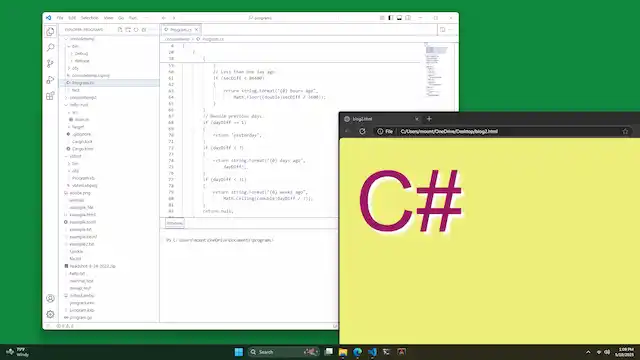C# Language Updates
Over the years the C# language has been updated many times, and each time the syntax seems to become more complex. It has adapted features from newer languages, and it has multiple ways to use a switch statement, access elements in a List, define methods, and more.

I can see why the language is updated by Microsoft—it would become obsolete otherwise. Developers would want to use more modern languages (like Rust) that have the newer features. But the problem with a language that is updated so many times is that it ends up being unrecognizable.
On each release, C# gains new features but these features were not part of its initial design:
switch statement, but also a switch expression that returns values (and has different syntax).List in many ways—basically any syntax is supported.In my experience, most developers do not use many of the new features. Despite this, C# ends up becoming more complicated and difficult to use. If you have to learn so much new language syntax, why not just learn a language that was designed with modern features from the start? The language from .NET 4 makes more sense than what it has turned into in 2025.